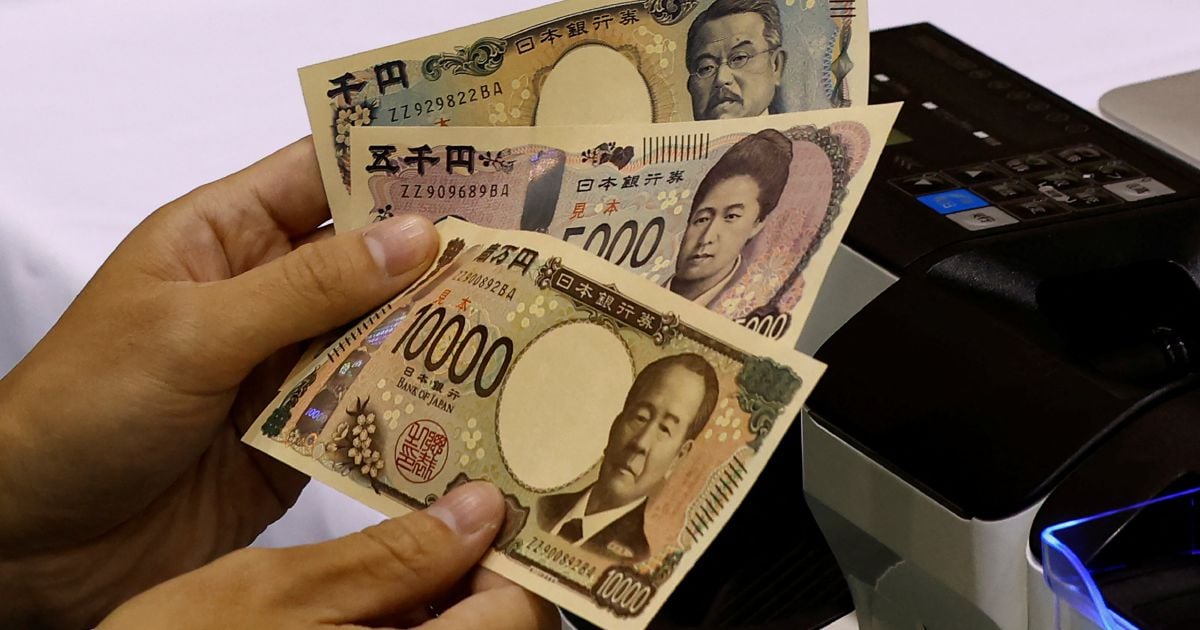SINGAPORE: The yen fell broadly on Monday following news that Japanese Prime Minister Shigeru Ishiba had resigned, while the dollar was nursing losses after tumbling on a weak US jobs report that cemented expectations for a Federal Reserve rate cut this month.
Focus for markets on Monday will also be on French Prime Minister Francois Bayrou’s confidence vote, which he is expected to lose, plunging the euro zone’s second-largest economy deeper into political crisis.
Japan’s Ishiba on Sunday announced his resignation, ushering in a potentially lengthy period of policy uncertainty at a shaky moment for the world’s fourth-largest economy.
The yen slumped in response in Asia trade on Monday, falling 0.6 per cent against the dollar to 148.25.
The Japanese currency similarly slid to its lowest in more than a year against the euro and sterling at 173.91 and 200.33, respectively.
Investors are focusing on the chance of Ishiba being replaced by an advocate of looser fiscal and monetary policy, such as Liberal Democratic Party (LDP) veteran Sanae Takaichi, who has criticised the Bank of Japan’s interest rate hikes.
“The probability of an additional rate hike in September was never seen as high to begin with, and September is likely to be a wait-and-see,” Hirofumi Suzuki, chief currency strategist at SMBC, said of the BOJ’s next move.
“From October onward, however, outcomes will in part depend on the next prime minister, so the situation should remain live.”
Concerns over political uncertainty prompted a selloff in the yen and Japanese government bonds (JGBs) last week, sending the yield on the 30-year bond to a record high.
“With the LDP lacking a clear majority, investors will be cautious until a successor is confirmed, keeping volatility elevated across yen, bonds and equities,” said Charu Chanana, chief investment strategist at Saxo.
“Near-term, that argues for a softer yen, higher JGB term-premium, and two-way equities until the successor profile is clear.”
Former Japanese foreign minister Toshimitsu Motegi said he would run in the race to decide the next head of the LDP, Kyodo reported on Monday.
The yen hardly reacted to Monday’s data, which showed Japan’s economy expanded much faster than initially estimated in the second quarter.
SEPTEMBER FED CUT BAKED IN
The dollar was recouping some of its heavy losses, helped in part by the yen’s weakness, after falling sharply on Friday on data that showed further cracks in the US labour market.
The nonfarm payrolls report showed US job growth weakened sharply in August and the unemployment rate increased to nearly a four-year high of 4.3 per cent.
Investors ramped up bets of an outsized 50-basis-point rate cut from the Fed later this month following the release and are now pricing in an 8 per cent chance of such a move, as compared to none a week ago, according to the CME FedWatch tool.
Against the dollar, sterling fell 0.11 per cent to US$1.3492, having risen more than 0.5 per cent on Friday. The euro was similarly down 0.11 per cent at US$1.1709, after hitting a more than one-month high on Friday.
The dollar index steadied at 97.87, after sliding more than 0.5 per cent on Friday.
“Given the more elevated downside risks to the employment side of the mandate, we think a rate cut at the September meeting is all but assured. We continue to expect a 25bp cut at that meeting,” said Barclays economists in a note.
“However, we change our Fed call by adding another 25bp cut in October, while leaving our December cut unchanged. In all, we now think the FOMC will proceed with three 25bp cuts this year, easing the policy stance in the face of the slowing labor market.”
US Treasury Secretary Scott Bessent on Friday called for renewed scrutiny of the Fed, including its power to set interest rates, as the Trump administration intensifies its efforts to exert control over the central bank.
President Donald Trump is considering three finalists for Federal Reserve chair to replace Jerome Powell, whom the president has criticised all year for not cutting rates as he has demanded.
Elsewhere, the Australian dollar was up 0.05 per cent at US$0.6558, while the New Zealand dollar eased 0.03 per cent to US$0.5891.
© New Straits Times Press (M) Bhd






